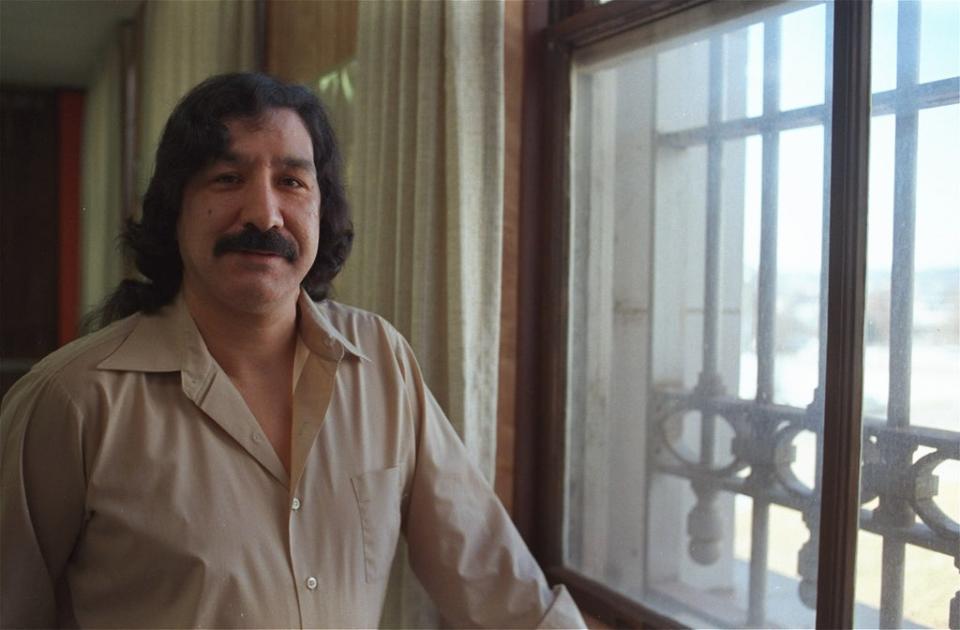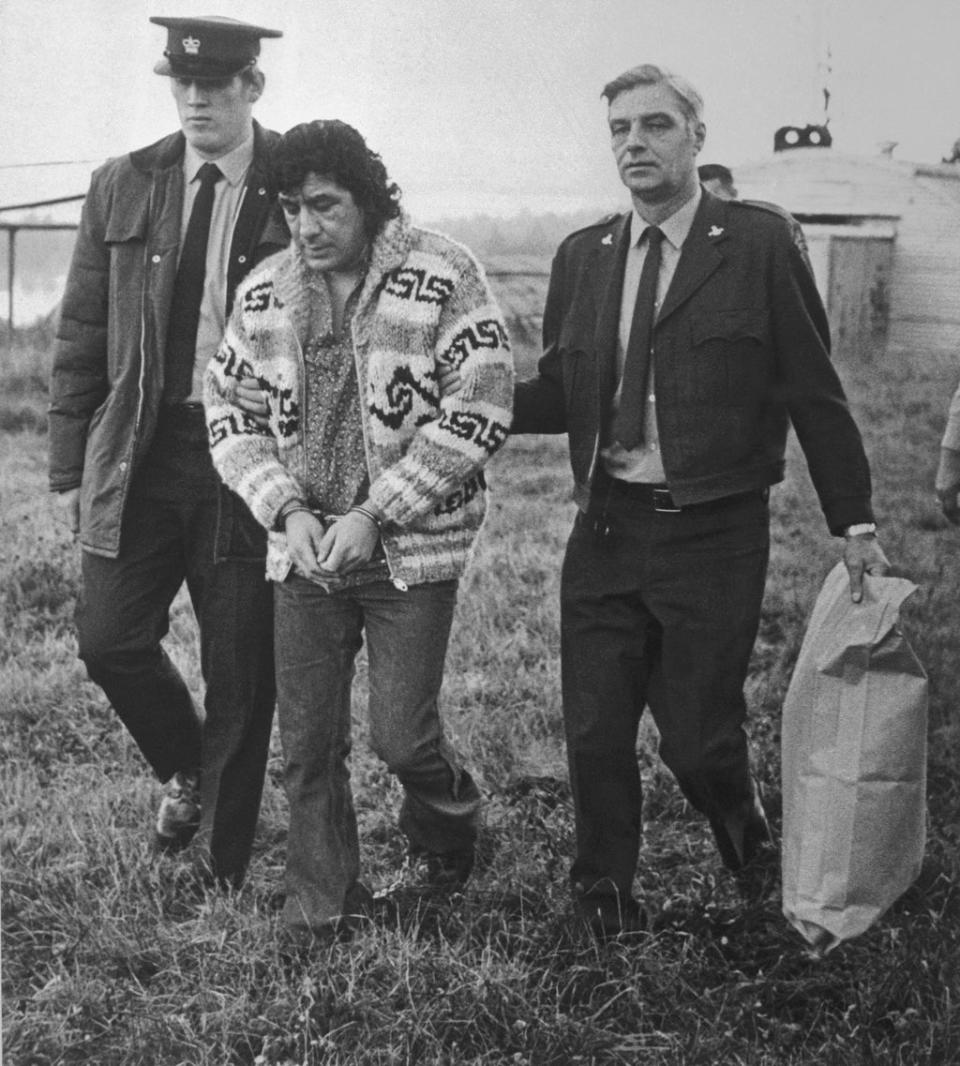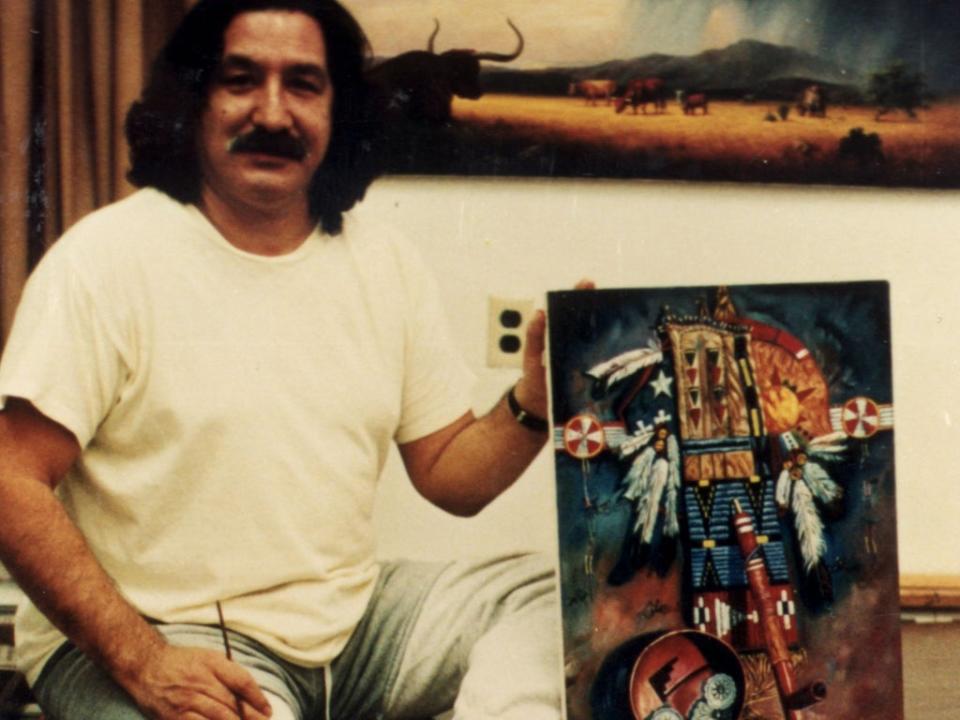Could America’s longest-serving ‘political prisoner’ be on the verge of freedom?

Native American activist Leonard Peltier has spent 44 years behind bars for the murder of two FBI agents during a 1975 gun battle on the Pine Ridge Reservation in South Dakota. For decades, activists have maintained his innocence, stating that his conviction was based on an “unfair trial”.
Human rights leaders fighting for his freedom have included everyone from Pope Francis and the Dalai Lama to Mother Teresa, Nelson Mandela and Coretta Scott King. Musicians including Rage Against The Machine, Willie Nelson, Bonnie Raitt and Jackson Browne have held concerts to highlight his fight for freedom. But in 2021 came one of the most powerful voices in his campaign.
James Reynolds, the US attorney who helped incarcerate Mr Peltier in the 1970s, wrote an astonishing letter to President Joe Biden in July. The contents of the letter were made public in November. In it, the lawyer implored the US commander in chief to free the man he now believes was wrongly convicted and to help repair the fractious relationship between Native Americans and the US government.
“I write today from a position rare for a former prosecutor: to beseech you to commute the sentence of a man who I helped put behind bars,” wrote Mr Reynolds.
Carol Gokee, the National Director of the Leonard Peltier Defense Committee, has highlighted to The Independent the specific failings in the 1975 trial. “The actions of the FBI and the federal government unquestionably lead to the circumstances for Leonard being in jail,” she says. “The falsified affidavits for extradition, the second autopsy without looking at the bodies so they can point to a particular gun, the falsified ballistics, the intimidated witnesses who gave false testimony, and so much more.”

Mr Reynolds writes in his letter that the only legitimate evidence court had was that Mr Peltier was “present with a weapon at the Reservation that day,” he wrote. “He has served more than 46 years on the basis of minimal evidence, a result that I strongly doubt would be upheld in any court today.”
Now aged 77, and suffering from diabetes and an abdominal aortic aneurysm, which can be lethal if ruptured, this could be the final chance for Peltier to be released. It would free “Leonard Peltier from this nightmare. And restore justice to an already broken system,” said Ms Gokee, who hails from the Ojibwe tribe in northern Wisconsin.

When Mr Peltier is not on lockdown, Ms Gokee speaks to him daily during his allotted 10-minute phone call from within the walls of the Coleman Federal Correctional Complex in Florida, but his health is deteriorating, explains Ms Gokee.
“With the lack of proper treatment and prevention, these things could lead to something much more serious, or death,” she says, stating that despite his dire situation he has not given up hope. “His determination, strong will and humility have not wavered,” she says, he is a “humble, kind, and pained man”.
More significant support for Peltier came from Arizona Representative Raul Grijalva along with 10 other Democratic representatives in October – they wrote a letter to President Biden requesting the release of Peltier under Covid-19 regulations. During the pandemic, the Department of Justice authorised the Federal Bureau of Prisons to release elderly inmates and those with underlying health conditions from federal prisons.
The representatives also highlighted the procedural failings in Peltier's case. “Many evidentiary and procedural issues arose during the prosecution of Mr Peltier’s case, such as a critical alleged eyewitness to the shootings later retracting her testimony and admitting that the FBI had threatened her. Following a Freedom of Information Act ruling in 1980, Mr Peltier’s lawyers also discovered that the prosecution had withheld documented evidence that might have assisted Mr Peltier’s case,” read the letter.
George Floyd’s murder and the Black Lives Matter movement have reinvigorated debate on the racial oppression of certain groups in the US. Native Americans have undoubtedly long been persecuted over the years, from the brutal slaughter of millions of Native Americans centuries ago to ripping children from their families and forcing them to abandon their language, religion and culture in favour of “civilising” them into Euro-American culture – which took place as recently as the 20th century. This prejudice has spilt over into law enforcement, claim activists. “The US penitentiary is the largest Indian Reservation in the United States,” Peltier has previously commented.
But even perceived allies in the cause for racial justice have neglected Peltier's case; the campaign was convinced that former President Barack Obama would grant clemency, but he did not.
“I really think it’s the weight that the FBI and Justice Department carry that prevents presidents from granting clemency,” Justin Mazzola, deputy director for research at Amnesty International USA told HuffPost. A number of issues include the fact that he was convicted of killing two FBI agents, and the problems with the trial “come down to the FBI and US Attorneys that were involved in his case,” he suggests.
However, Mr Reynolds's powerful letter, in which he admits to his error in helping to convict Peltier in 1977, brings renewed hope.
“With time, and the benefit of hindsight, I have realised that the prosecution and continued incarceration of Mr Peltier was and is unjust. We were not able to prove that Mr Peltier personally committed any offence on the Pine Ridge Reservation.”
The Independent has contacted the White House for comment. The FBI declined to comment.

 Yahoo News
Yahoo News 